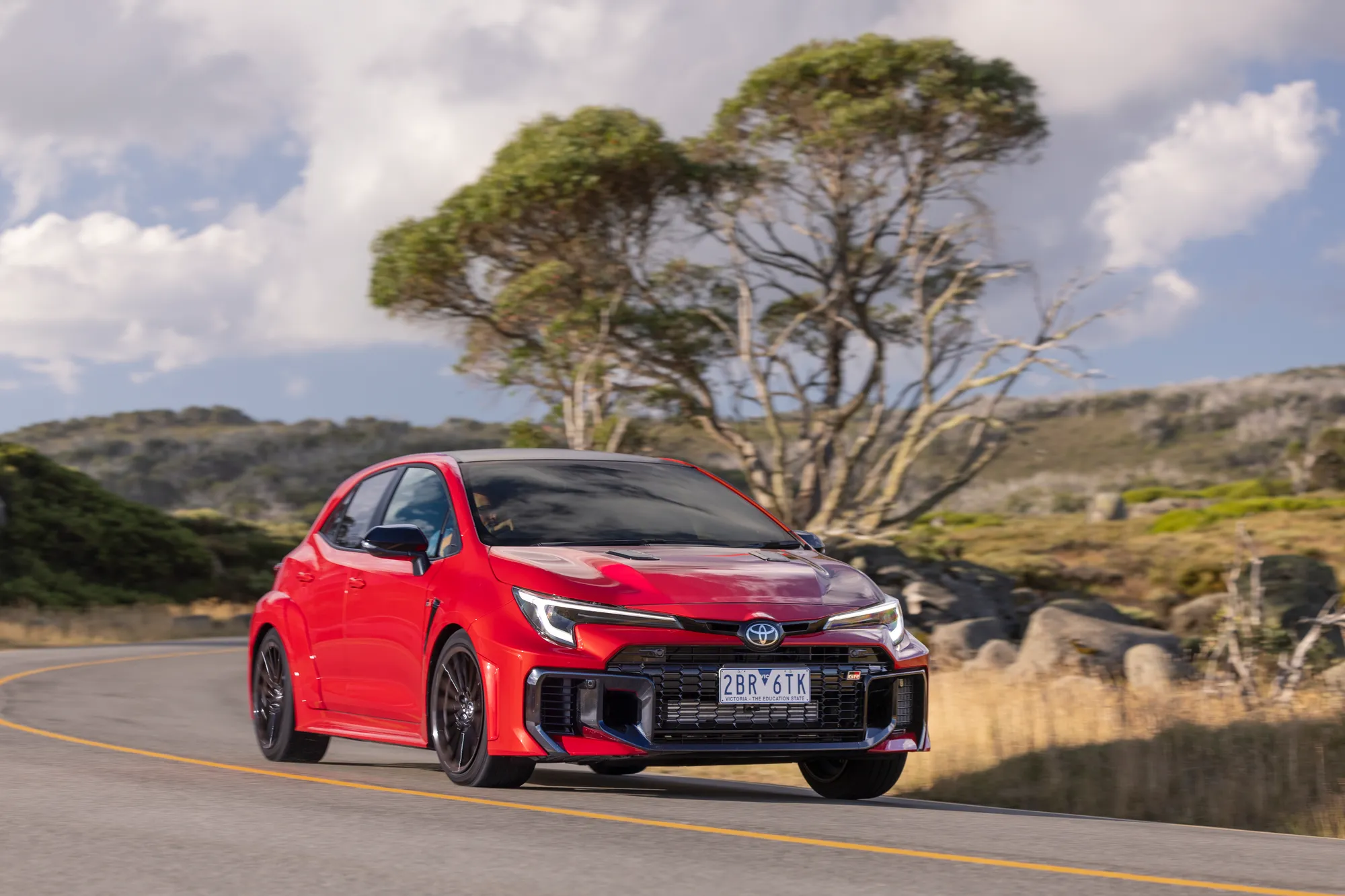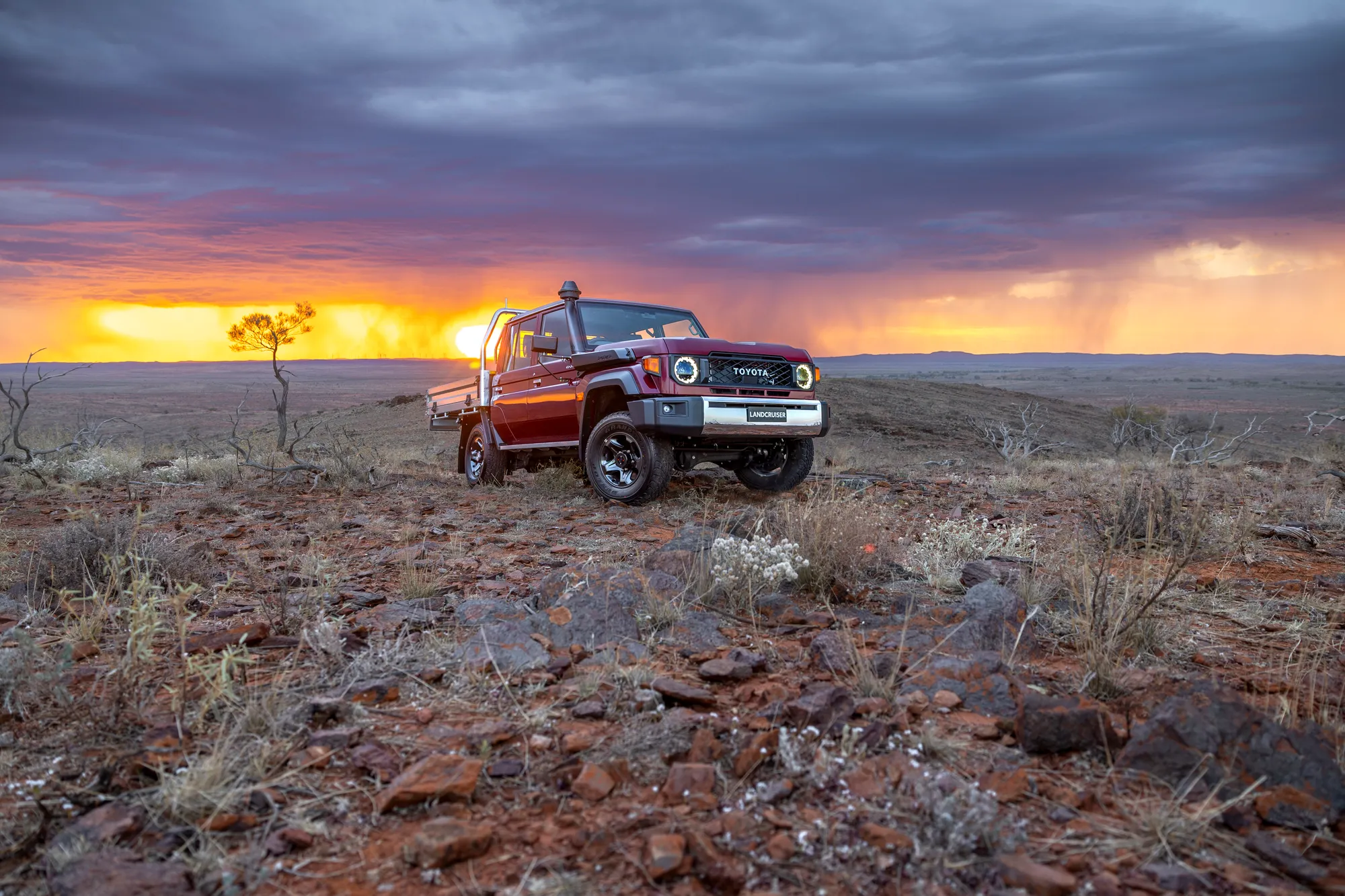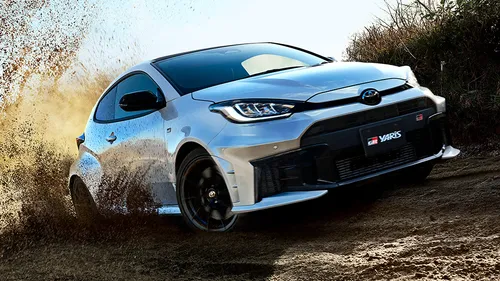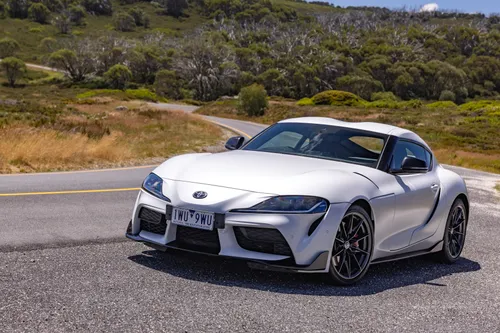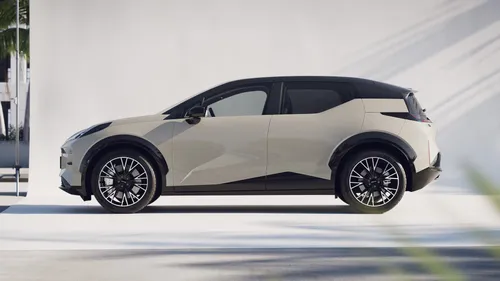2025 Toyota GR Corolla GTS Automatic vs 2024 Toyota 79 Series Double Cab Chassis GXL Manual
2025 Toyota GR Corolla GTS Automatic
2024 Toyota 79 Series Double Cab Chassis GXL Manual
Compare the 2025 Toyota GR Corolla GTS Automatic against the 2024 Toyota 79 Series Double Cab Chassis GXL Manual. See detailed specifications, pricing estimates across all Australian states and territories, and key differences between these vehicles.
Key Specifications
Pricing by State
By using this website, you agree to our Terms and Conditions. All pricing estimates are indicative only and provided by Gradient Information Systems.
Which Vehicle Should You Choose?
Based on our detailed comparison of specifications and pricing, here's what you should consider when choosing between the 2025 Toyota GR Corolla GTS Automatic and the 2024 Toyota 79 Series Double Cab Chassis GXL Manual:
Budget & Value:
The 2025 Toyota GR Corolla GTS Automatic offers better upfront value with an MSRP of $70,490.00 compared to $87,600.00 for the 2024 Toyota 79 Series Double Cab Chassis GXL Manual - a difference of $17,110.00 (20% less). Always consider the total driveaway cost in your state, not just the MSRP.
Running Costs:
The 2025 Toyota GR Corolla GTS Automatic is more fuel efficient at 9.5L/100km compared to 10.7L/100km for the 2024 Toyota 79 Series Double Cab Chassis GXL Manual - using 1.2L less per 100km (11% improvement). This could save you significant money on fuel over time.
Environmental Impact:
The 2024 Toyota 79 Series Double Cab Chassis GXL Manual produces lower emissions at 281g/km compared to 311g/km for the 2025 Toyota GR Corolla GTS Automatic - emitting 30g/km less (10% reduction). In jurisdictions with emissions-based registration fees like the Australian Capital Territory, the lower-emitting 2024 Toyota 79 Series Double Cab Chassis GXL Manual may qualify for reduced registration costs.
Space & Practicality:
Both vehicles offer the same seating capacity (5 seats).
Technology & Features:
The 2025 Toyota GR Corolla GTS Automatic is 1 year newer (2025 vs 2024), likely featuring more modern technology, safety features, and potentially better warranty coverage.
